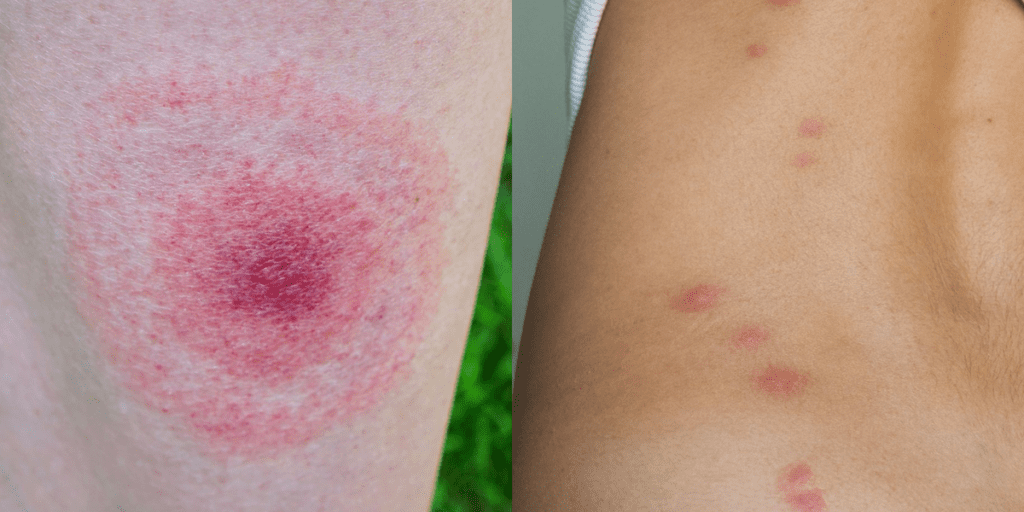In summer, there is nothing better than meeting a few friends at a lake with a cool drink. Insects such as mosquitoes and horseflies, which like to bite and sting, are not invited, but usually part of the party. But gardeners don’t have to endure the itching afterwards without help. We reveal which plants soothe the skin.
Contents
Plants against itching: This is what happens when an insect or mosquito bites you
Fortunately, most insect bites in this country are not dangerous. However, gardeners should be careful, because the site of the bite is also crucial – a bite in the throat, mouth or eye area requires special observation. Mosquitoes, wasps and bees bite particularly often in summer. The reasons for this vary: mosquitoes need our blood to produce eggs, wasps and bees only bite when they are in danger. Horseflies, on the other hand, do not sting but bite. The bites and stings are painful in different ways, but in the case of a mosquito bite, itching at the site of the bite can last for days.
This is due to the saliva that mosquitoes secrete when they bite. It contains an anticoagulant protein that dilates the blood vessels and makes it easier for the animal to suck human blood. The human body reacts to this protein by increasing mast cell production, which in turn releases histamine. This leads to the sometimes unbearable itching and even inflammation.
Rule number one for a mosquito bite: don’t scratch!
Scratching a mosquito bite opens the way for bacteria to penetrate the skin. Streptococci are a good example of this. They multiply in the body in the lymphatic channels and in the worst case cause lymphoedema. If the bacteria come into contact with the bloodstream, blood poisoning cannot be ruled out either.
But humans are not the only ones to blame for the spread of bacteria at the site of the bite. Mosquitoes themselves can also be the culprit, because faecal bacteria can also stick to their mouthparts. So scratching is always the worst of all solutions!
It pays to reach into the herb patch
If the skin is already swollen and itchy from insect and mosquito bites, the herb garden offers the quickest first aid. Some of the typical herbs that grow easily and luxuriantly in the garden are not only suitable as a basis for delicious tea or a flavour kick in salads and main dishes, but also serve us outside the kitchen with their valuable ingredients.
The following herbs are particularly effective against itching:
Ribwort plantain
Common plantain
Savory
Coltsfoot
BasilOne of the herbs mentioned above can be found in almost every herb patch – then it’s just a matter of processing. It is not always enough to cover the puncture site with the herbs.
Plants for itching: Here’s how to use them
Once gardeners have found what they are looking for in the herb patch, it’s off to the kitchen. Grind a handful of the collected ribwort between your hands and squeeze the juice from the leaves directly over the sting wound. The itching will then subside quite quickly. The juice of the ribwort plantain is not only supposed to soothe the irritated skin, but also protect against bacterial infections at the puncture site and reduce swelling. This procedure also works with common plantain, coltsfoot and savory.
In order for the basil to spread its full effect, gardeners need to make it into a decoction. To do this, put half a litre of water in a pot on the cooker and let the water simmer gently. Add five tablespoons of fresh basil leaves and boil them in the water for five minutes. Then strain the broth and let it cool. If you put the finished, cool broth on the puncture site, you will have much less desire to scratch shortly afterwards.
What else helps besides herbs
However, herbs are not the only secret weapon that gardeners have at hand against itchy mosquito bites or other painful insect bites. The following natural remedies also work particularly well:
Lemons: Cut the lemon in half and rub the cut side over the bite. The juice that comes out disinfects the sting and soothes the skin.
Leeks: Cut off the lower white part of the leek and wrap it around the puncture site as a compress. The ingredients of the leek have a positive effect on the puncture site and soothe the itching.
Onions: They are particularly helpful for wasp stings. Rubbing the sting site with onion slices prevents inflammation and cushions the pain somewhat.The garden can become a real little pharmacy if gardeners know how valuable and healing the plants in their beds are. By the way, many herbs can easily be grown on the windowsill. We explain which herbs work best.


